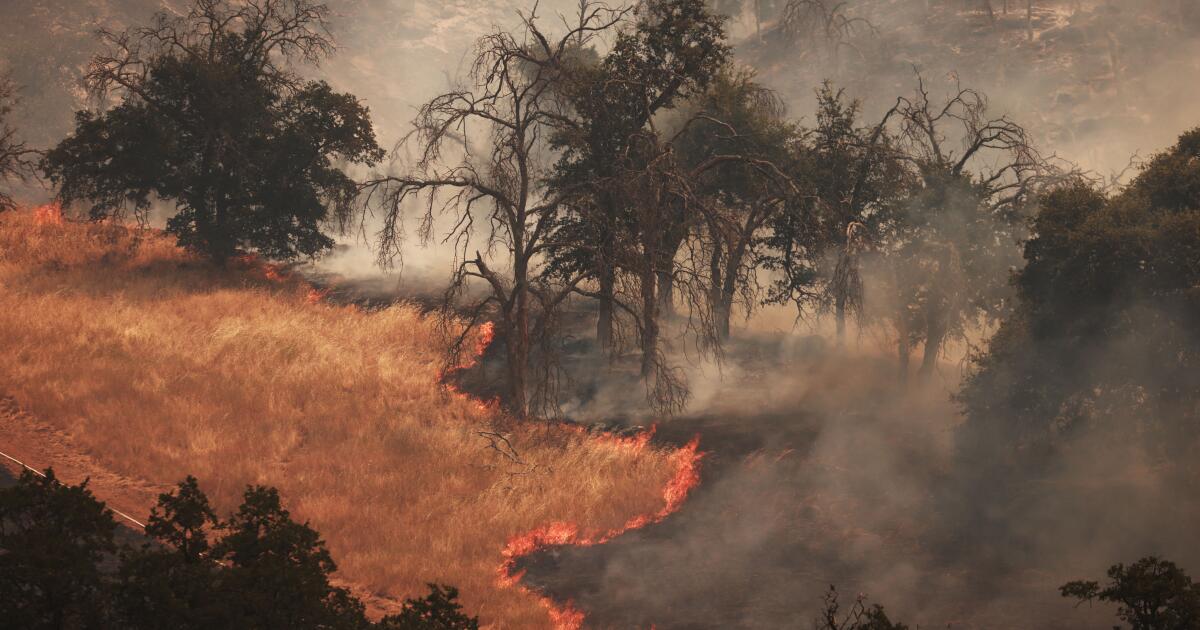Four months after California Attorney General Rob Bonta announced a series of felony charges against a top aide to the Los Angeles County district attorney, state prosecutors this week dropped three of the 11 charges but still moved forward with the trial.
Diana Teran, a former Los Angeles County Sheriff’s Department counsel who later oversaw ethics and integrity operations at the district attorney’s office, is accused of illegally using confidential personnel records. State prosecutors allege Teran violated the law three years ago when she flagged the names of several sheriff’s deputies for possible inclusion in a district attorney’s internal database of officers accused of misconduct.
According to state prosecutors, Teran only knew the names of the officers and alleged misdeeds committed in his role at the district attorney's office because he had accessed their records in 2018 while still working at the Sheriff's Department.
Last month, Teran pleaded not guilty to all charges. According to his attorney, James Spertus, the officers' backgrounds were It is already public in court cases and other records.
Although both sides have faced dozens of legal filings in recent months, a preliminary hearing will determine whether there is enough evidence to move forward to trial, the first real courtroom showdown.
The hearing was scheduled for Wednesday, but prosecutors said they were unprepared and had not asked their witnesses to appear. On Thursday, Los Angeles County Superior Court Judge Sam Ohta expressed skepticism about the state's theories and questioned the point of moving forward with the case.
“I don’t think this type of factual scenario will happen very often,” he said. “Part of criminal law is to deter future criminal behavior, so what are we trying to deter here?”
The allegations at the center of the case date back to 2018, when Teran was working as a police constitutional adviser for then-Sheriff Jim McDonnell. Part of her regular duties included accessing confidential officer records and internal affairs investigations.
The department used secret tracking software that kept records of the more than 1,600 personnel files it searched and reviewed, according to an affidavit state prosecutors filed in court earlier this year.
After leaving the Sheriff’s Department in late 2018, Teran joined the district attorney’s office, where state prosecutors allege he sent a list of 33 names and supporting documents to another prosecutor in 2021 for possible inclusion in a so-called Brady database, which contains officers with problematic disciplinary histories. The name is a reference to a landmark 1963 U.S. Supreme Court decision requiring prosecutors to turn over any evidence favorable to a defendant, including evidence of police misconduct.
The affidavit says several of the names Teran emailed to fellow prosecutor Pamela Revel were of deputies whose files he had had access to while working at the Sheriff’s Department. After searching news articles and public records requests, a state investigator discovered that 11 of the names had not been mentioned publicly, leading to the allegation that Teran would not have been able to identify them if not for his special access working at the Sheriff’s Department.
For months, the state has resisted releasing the names of the 11 officers, seeking protective orders at every turn. Bonta's office agreed to release the information earlier this year.the prosecutors still left Nine of the names redactedOnly the names of Liza Gonzalez and Thomas Negron, former officers who court records show were fired for dishonesty, a move the state has not explained, were made public.
This week, when Bonta’s office filed an updated version of the criminal complaint, charges involving Gonzalez, Negron and another officer, identified only as Officer Doe 11 in court filings, were dropped. Prosecutors did not explain why those three charges were dropped, and the Justice Department did not respond to an emailed request for comment.
After the trial, Spertus told The Times that Officer Doe 11 was a civilian employee, not an officer.
Judge Ohta said in court that state prosecutors had also added “aggravating factors” to the complaint, but court staff told The Times that the document would not be available in court records until next week. The Justice Department did not respond to a request for a copy of the document.
Much of Thursday's hearing was devoted to testimony from Deputy Todd Bernstein, who spoke at length about files Teran had accessed during his time with the Sheriff's Department and which he had received information about in emails.
He also testified that most Sheriff's Department information is confidential under policy and that public information, including public court records, would be considered confidential once sent to the department, such as in an email attachment.
For Spertus, that testimony revealed how “legally untenable” the state’s position appears.
“Their view of the case is that when someone outside the Sheriff’s Department emails a public record to someone inside the department, it becomes a private record,” he later told The Times. “It is undisputed that the data allegedly taken was from Los Angeles Superior Court pleadings emailed to someone at the LASD, which then became LASD data.”
Those emailed public court records, he said, are the materials Teran is accused of flagging for inclusion in the Brady database.
A line of questioning in court Thursday echoed some of the allegations raised in a similar case that Bonta's office declined to prosecute earlier this year. As The Times reported last monthAfter Alex Villanueva was elected Los Angeles County sheriff in December 2018, his administration launched an investigation into leaked records and allegedly stolen personnel files.
Part of that investigation included claims that both Teran and officials from the Office of the Inspector General had downloaded a large number of deputies’ personnel records, including those of Villanueva and several of his close associates, in the final days before Villanueva took office. The 306-page Sheriff’s Department file reviewed by The Times did not clarify why that would be considered a crime.
At one point, a county legal counsel called the investigation “not legally viable,” and over the course of several years, state and federal prosecutors repeatedly rejected it, according to documents reviewed by The Times. But in 2021, the department raised the matter again with state prosecutors, sending them a letter and a filing outlining allegations that Teran, his assistant Alan Wang, two supervisory officials and a The Times reporter had participated On multiple felony counts. In May of this year, Bonta's office formally dismissed the case and declined to press charges.
On Thursday, however, state prosecutors asked Bernstein several questions about records Terán had accessed in the final days before Villanueva took office.
“Ms. Teran saw and had access to several cases that pertained to high-level executives in the department who had not worked in that field for years,” Bernstein said. “It is unconscionable that anyone would need to look up cases that are 20 years old from someone who is an executive in a department or who is not even an employee of the department.”
Asked if he had ever asked Teran why he had accessed so many files, Bernstein said he had not.
“Without talking to her,” Spertus said, “how do you know what she needs to do her job?”
Toward the end of the testimony, Spertus asked Bernstein if he had been involved in referring the case to the attorney general, and Bernstein said no.
But a Times review of the case file showed that, as one of the department’s technology and computer experts, Bernstein played a key role in the investigation. According to the file, he was one of the members of Villanueva’s transition team who discovered “abnormalities” when reviewing personnel records and ultimately triggered the criminal investigation sent to the state Justice Department.
Bernstein, whose personal records were among those allegedly accessed by oversight officials, did not respond to an emailed request for comment Thursday night.












